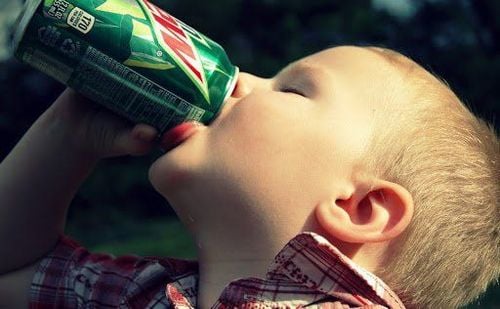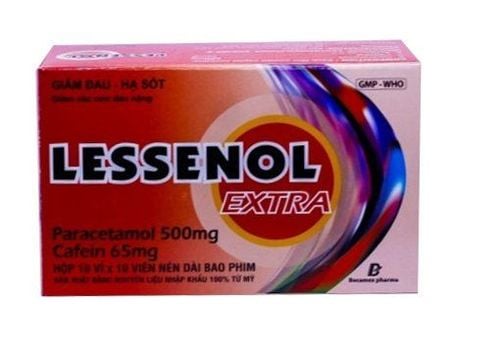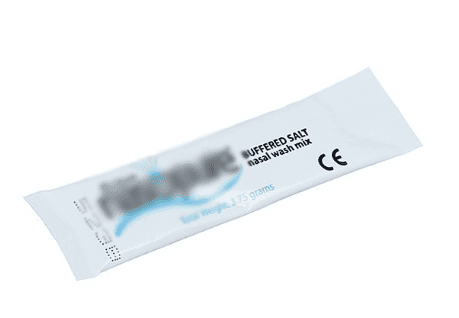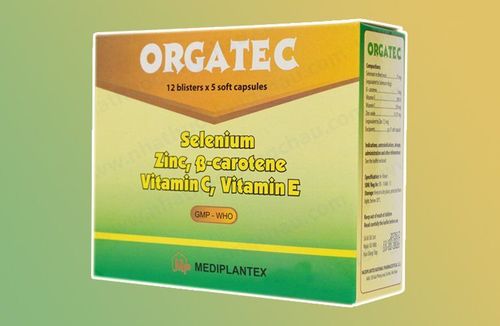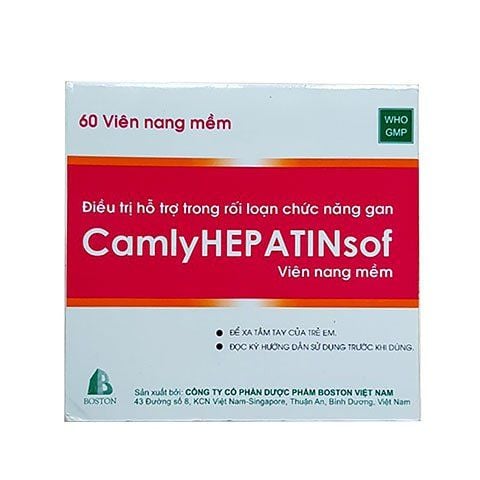This is an automatically translated article.
Energy drinks are currently being used more and more popularly in today's life, especially for those who practice sports and gym. However, regular use of these energy drinks can negatively affect health.1. What is an energy drink?
More and more energy drinks are appearing on the market these days with the supposed purpose of supporting exercise performance, muscle growth and energy recovery.Initially, sports drinks were created with the expectation of replacing electrolytes and carbohydrates. However, after a while, energy drinks containing stimulants and additives appeared in most gyms, grocery stores and widely available in the market. school. Meanwhile, long-term exposure to various components of these beverages can have significant health effects.
The majority of people who often consume energy drinks are between 11 and 35 years old. Most of these products contain ingredients that have stimulant and stimulant effects. Research results show that the use of stimulant drinks is associated with risky behaviors in adolescents and adolescents, including alcohol abuse, fighting, smoking. , even prohibited behaviors, such as marijuana use, illegal drug use.
However, we need to distinguish the two concepts "energy drinks" and "sports drinks". Sports drinks are meant for athletes and athletes, and they can really add electrolytes, carbohydrates, and hydration to your body's recovery from exercise. Meanwhile, energy drinks have a fairly high concentration of caffeine, leading to a diuretic effect, salt and water retention. In addition, these products have the ability to stimulate the body, causing thermogenesis. What's more, most energy drinks provide carbohydrates far beyond what is recommended for even athletes. This leads to a slow absorption of fluid into the bloodstream or to respiratory failure.
2. Ingredients in Energy Drinks
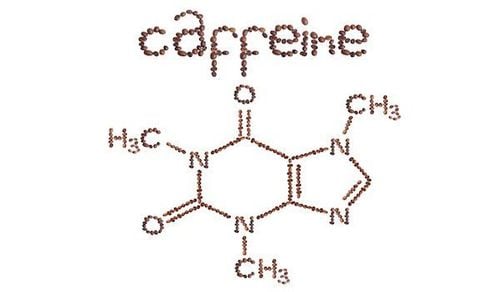
Cafein là chất kích thích thường có mặt trong hầu hết các thức uống bổ sung năng lượng
2.1. Caffeine Caffeine is an adenosine receptor antagonist, which stimulates the activity of neurons in the central and peripheral nervous systems. This is a stimulant commonly found in most energy drinks on the market today.
Caffeine increases heart rate and blood pressure. The adverse effects that often manifest with more than 200 mg of caffeine include: insomnia, nervousness, palpitations, headache, tachycardia, arrhythmia, and nausea. Caffeine has been shown to be effective in supporting athletes when taken before or during exercise in moderate amounts (3-6 mg caffeine/kg body mass).
Caffeine uses fat particles as fuel to stimulate muscle activity, slow down glycogen consumption and prolong training time.
Caffeine stimulates heart muscle cells, leading to increased contractility and increased heart rate, meaning the heart will beat faster and stronger. The rate of absorption of caffeine is quite rapid, leading to an almost immediate sympathomimetic effect, causing symptoms of hypertension and increased peripheral vascular resistance.
2.2. Taurine Taurine is the most abundant intracellular amino acid in humans and a common ingredient in our diets. Taurine is responsible for regulating skeletal muscle contractility and reducing the potential for DNA damage during exercise. Taurine also performs many other important physiological functions, including: binding bile acids and preventing biliary obstruction, antiarrhythmic effects and stabilizing myocardial spasms, central nervous system modulation, Supports retinal growth and function, endocrine and metabolic effects, and has antioxidant and anti-inflammatory properties. Taurine is also involved in the process of stabilizing cell membranes, osmosis and detoxification of the body.
However, in popular energy drinks, taurine concentrations were found to be much lower than would be expected to provide therapeutic benefits to the body.
2.3. Glucuronolactone Glucuronolactone is a chemical involved in the synthesis of glycogen, which is produced naturally in the body in very small amounts. Supplementing with glucuronolactone works to support the body's natural defenses against carcinogens and tumor promoters. However, to date, there have not been any scientific studies that have conclusively shown the role of glucuronolactone in any therapeutic purpose.
2.4. B group vitamins B vitamins in the form of coenzymes are essential for cell function, especially mitochondrial function in energy production. The B vitamins include thiamine (B1), riboflavin (B2), niacin (B3), pantothenic acid (B5), pyridoxine hydrochloride (B6), biotin (B7), cyanocobalamin (B12), and inositol (formerly known as inositol). is vitamin B8, but later inositol was not considered a vitamin because the body has the ability to synthesize it).
Most energy drinks contain huge amounts of sugar, so B vitamins are often touted as the ingredients needed to convert this sugar into energy for the body. In other words, B vitamins are an indispensable ingredient, playing the role of "unlocking" all the energy coins provided in the form of simple sugars in today's energy drinks. and this is the additional energy that the companies mentioned in the advertising content.
2.5. Guarana Guarana is a tropical forest tree domesticated in the Amazon. Guarana seeds contain more caffeine than any other plant in the world, with percentages ranging from 2% to 8%. This seed extract also contains stimulants such as theobromine and theophylline.
However, the amount of guarana present in today's popular energy drinks is lower than what can be therapeutically effective.
2.6. Ginseng (Ginseng) Ginseng is one of the precious medicinal herbs in the world, used in the treatment and prevention of many common diseases. Ginseng extract has been proven to increase the body's resistance, limit stress, psychological trauma, anxiety and fatigue.
Ginseng is currently used to supplement energy, reduce stress and increase memory by stimulating the hypothalamus and pituitary to secrete corticotropin (a hormone that stimulates the adrenal cortex). On the other hand, research shows that the use of ginseng can lead to many side effects, including hypotension, edema, palpitations, tachycardia, cerebral arteritis, dizziness, headache, Insomnia, excitement, vaginal bleeding, amenorrhea, fever, appetite suppression, rash, sore throat.
However, ginseng extracts found in energy drinks are much lower than levels that could provide therapeutic benefit or cause side effects.

Thành phần chiết xuất từ nhân sâm được tìm thấy trong các loại đồ uống bổ sung năng lượng lại thấp hơn rất nhiều so với mức có thể đem lại lợi ích trị liệu
2.8. L-carnitine L-carnitine is an amino acid made mainly by the liver and kidneys to boost metabolism. Supplementing this amino acid through the diet has been shown to increase maximal oxygen consumption, decrease respiratory index and stimulate lipid metabolism. L-carnitine plays a crucial role in preventing cell damage and has a beneficial effect on post-workout recovery. The absorption of l-carnitine from blood cells has the ability to stimulate hematopoiesis, inhibit collagen-induced platelet aggregation and prevent cell death under the influence of the immune system.
2.9. Sugar Sugar is the basic ingredient, providing energy for the body, present in most energy drinks in the form of fructose or sucrose). Adding sugar before, during, and after prolonged exercise (more than 1 hour) has been shown to delay fatigue, conserve muscle glycogen, and improve exercise performance.
However, the amount of sugar provided in one unit of energy drink (500mL) is about 54 g. One teaspoon contains about 4g of sugar, so 54g of sugar is equivalent to about 13 teaspoons. This amount of sugar is considered excessive for the body's energy needs, even during exercise. Long-term excess of sugar in the body easily leads to obesity and insulin resistance.
2.10. Antioxidants During exercise, oxidative stress occurs whenever there is muscle damage or muscle metabolism. Antioxidants are added with the assumption that they can aid the body during the post-workout recovery period and reduce damage to muscle cells. However, there is no convincing evidence that exercise requires a supply of antioxidants, nor has any significant effect been shown to benefit athletes.
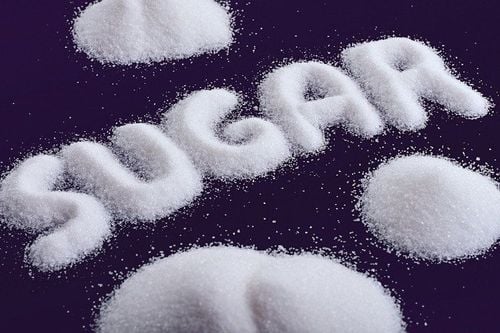
Đường là thành phần cơ bản, cung cấp năng lượng cho cơ thể, có mặt trong hầu hết các loại thức uống bổ sung năng lượng
3. Are energy drinks safe for the body?
To answer the question of the safety of energy drinks, it is important to consider both the short-term and long-term effects following the use of these products. Accordingly, the physiological effects occur immediately after the first intake.3.1. Short-term effects Immediately after consuming an energy drink, there is likely to be a significant increase in heart rate and blood pressure. Therefore, patients with high blood pressure should not use this drink. Another study showed that energy drinks have the ability to increase the ability of the heart to contract after consumption. This may not be good for heart disease.
For people who do not regularly consume caffeine, energy drinks provide a significant amount of caffeine, which can stimulate the kidneys to produce urine, showing a dehydrating effect.
3.2. Long-term effects To date, there have been no studies on the long-term effects of caffeine, taurine and glucuronolactone in energy drinks on the body. However, these drinks can exacerbate risk factors for heart disease as studies have shown that energy drinks can cause drug dependence. Norway, Denmark and France have banned the sale of energy drinks when studies on rats supplemented with taurine showed they displayed unusual behaviour.
3.3. Interaction with alcohol Nowadays, many people drink alcohol with energy drinks. The combination of these two drinks has the potential to lead to cognitive impairment and reduced symptoms of alcohol intoxication, leading to loss of behavioral control (risk of accidents, crime) and criminal penalties. become addicted to alcohol. The interaction between the two beverages also increased symptoms of arrhythmias in patients with underlying heart disease.
4. What to drink to supplement healthy energy?
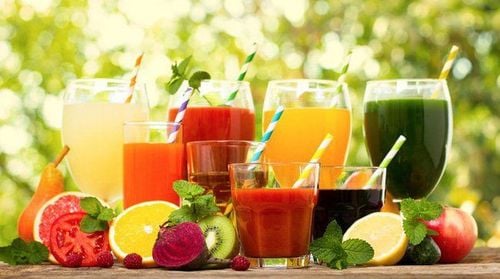
Nước ép trái cây nguyên chất có tác dụng tăng đường huyết và bổ sung các loại vitamin cần thiết cho tập luyện
To replenish energy in a healthy way, the following drinks are considered reasonable choices:
Electrolyte solution: Helps rehydrate and balance electrolytes during exercise, sweating a lot . Supplementing electrolytes helps to rebalance the necessary ion source for the body, limiting the manifestations of lack of energy such as dizziness, dizziness, fatigue; Pure fruit juice: Has the effect of raising blood sugar and adding essential vitamins for exercise, such as vitamins C, B, A, increasing immunity, rehydrating electrolytes, fighting thirst and helping mental health. more alert; Milk and dairy products: A high-protein drink, helping to replenish energy and supplement calories for the body to work more efficiently. Besides, to optimize performance, avoid loss of strength and energy, in addition to providing healthy drinks to replenish energy, you also need to build yourself good habits, This includes drinking enough water, getting enough sleep, exercising moderately, and balancing nutrition with healthy foods like green vegetables, whole grains, and fruits.
Please dial HOTLINE for more information or register for an appointment HERE. Download MyVinmec app to make appointments faster and to manage your bookings easily.
Reference source: US National Center for Biotechnology Information



